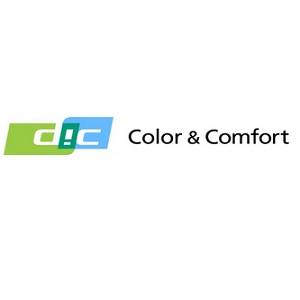
Apdicglobal
Uploaded on Oct 5, 2024
Category
Business
Explore the importance of waterproof coatings, including water base and water resistance options, for protecting surfaces from moisture damage.
Category
Business
Comprehensive Guide to Waterproof Coatings and Their Benefits
Understanding Waterproof Coatings: A Comprehensive
Overview
Waterproof coatings are essential in protecting surfaces from water damage and
enhancing durability. These coatings come in various forms, including water base
coatings and water resistance coatings, each offering unique benefits and applications
across multiple industries.
What are Waterproof Coatings?
Waterproof coatings are specially formulated substances designed to create a barrier
against water infiltration. They can be applied to a wide range of surfaces, including
roofs, walls, and decks, ensuring that these structures remain intact and protected from
moisture-related issues. By preventing water from penetrating the surface, these
coatings help to mitigate problems such as mold, mildew, and structural deterioration.
Types of Waterproof Coatings
Among the various types of waterproof coatings, water base coatings have gained
popularity due to their environmentally friendly properties. These coatings are primarily
composed of water as a solvent, making them low in volatile organic compounds
(VOCs). This characteristic not only contributes to a healthier indoor air quality but also
makes them easier to clean up after application. Water base coatings are ideal for both
residential and commercial use, providing excellent adhesion and flexibility, which helps
them to adapt to surface movements.
On the other hand, water resistance coatings offer an additional layer of protection,
particularly in areas prone to heavy moisture exposure. These coatings are formulated
to withstand water pressure and resist the damaging effects of prolonged contact with
water. They are commonly used in basements, swimming pools, and exterior walls,
where moisture levels are consistently high. Water resistance coatings can effectively
prevent leaks and seepage, thereby extending the lifespan of structures and reducing
maintenance costs.
Applications of Waterproof Coatings
Waterproof coatings are widely used across various sectors, including construction,
automotive, and marine industries. In construction, they play a crucial role in protecting
buildings from water ingress, ensuring structural integrity over time. In the automotive
sector, waterproof coatings are applied to vehicle exteriors and interiors to enhance
durability and prevent corrosion. Additionally, marine applications often require
waterproof coatings for boats and docks, where exposure to water is constant.
Benefits of Using Waterproof Coatings
The primary benefit of using waterproof coatings is the protection they provide against
water damage. By creating a durable barrier, these coatings help to prevent costly
repairs associated with leaks and moisture intrusion. Furthermore, waterproof coatings
can enhance the aesthetic appeal of surfaces, as many formulations are available in a
variety of colours and finishes.
In conclusion, waterproof coatings, including water base coatings and water resistance
coatings, are vital for ensuring the longevity and durability of surfaces exposed to
moisture. Their ability to protect against water damage while being environmentally
friendly makes them a valuable choice for a wide range of applications. Whether for
residential or commercial use, investing in quality waterproof coatings can lead to
significant long-term benefits.

Comments